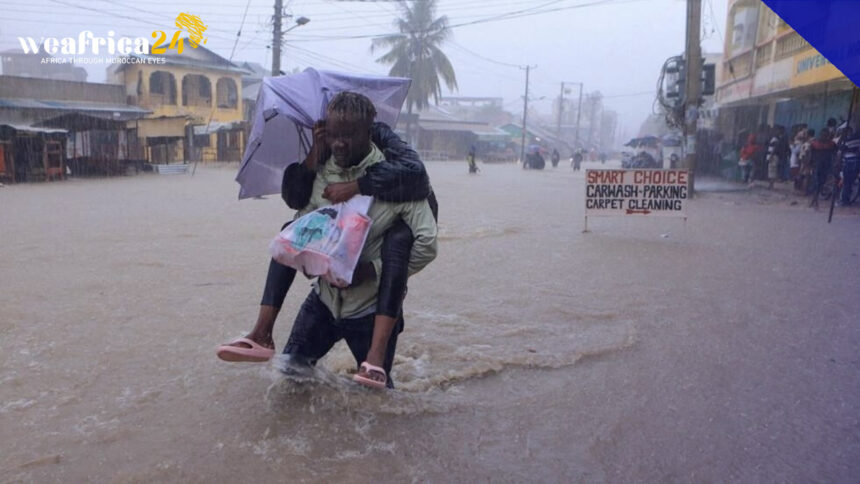In recent weeks, East Africa has been experiencing torrential rains, resulting in the deaths of at least 58 people in Tanzania during the first half of April and 13 others in Kenya. Other countries affected include Burundi, Zambia, the DRC, and Congo-Brazzaville. Two well-identified culprits: climate change exacerbated by the El Niño phenomenon.
In the Plateaux, Cuvette, and Likouala departments, the floodwaters continue to recede, but as the water retreats, damage assessment, disinfection, and rehabilitation of schools, health centers, sanitation facilities, and water points are necessary. All of these require time and significant resources.
“The goal is to provide clean water in situations where malnutrition was already present. It is necessary to intensify programs to combat malnutrition, with acute and severe cases requiring regular and permanent care,” says Georges Gonzales, Deputy Representative in charge of programs at UNICEF in Congo-Brazzaville.
Four months after record floods affected nine out of twelve departments, the United Nations Children’s Fund (UNICEF) estimates that 100,000 children need humanitarian assistance in Congo-Brazzaville. For 49,000 of them, schooling has been interrupted. UNICEF is focusing its efforts on the three hardest-hit departments, located in the north along the Congo and Oubangui rivers.
The UNICEF representative in the Republic of Congo visited the Mpouya district. She describes a concerning situation regarding deteriorating learning conditions for school-aged children. UNICEF is distributing school kits and installing temporary classrooms that should be functional by the end of the month.
Tablets to treat water, measures to limit the risk of diseases, resumption of monitoring malnutrition cases, and vaccination efforts… Some affected areas are only accessible by river. To reach the most remote areas, it sometimes takes a week. According to the latest assessment, over half a million people need humanitarian assistance after these floods, equating to one out of twelve inhabitants. While UNICEF has received funding for emergency response (from the government of Japan, USAID, and CERF), the organization is concerned about the limited funds mobilized for the longer term, particularly for school reconstruction.
In eastern DRC, the city of Kalemie has been underwater for several weeks. The city is split in two, reports our correspondent in Lubumbashi, Denise Maheho. Heavy rains have caused the waters of Lake Tanganyika to rise, resulting in extensive material damage. Lumumba Avenue, the main thoroughfare connecting the city center to the Lukuga commune, is submerged in water for over 100 meters, with depths exceeding two meters in some areas. Only a few large trucks are still attempting to navigate this avenue, but crossing is now done by canoe.
In addition to the rising waters of Lake Tanganyika, the surrounding rivers have overflowed, causing significant damage. According to local civil society, over 3,500 households are affected, with hundreds of residential, commercial, and even public infrastructure buildings inaccessible. However, this toll could worsen as threatened families abandon their homes every day. Some infrastructures, such as hotels and schools, are either destroyed or inaccessible.
Jules Mulya, president of the local chamber of commerce, explains that economic activities are also affected. Most commercial buildings are flooded, including warehouses storing goods. The port of Kalemie, the economic hub of the city, is not spared either. For his part, provincial Minister of Infrastructure, John Seya, indicates that the province does not have the financial means to cope with these disasters.
Burundi Calls for Help
Burundi also requests funding to address the consequences of heavy rains that have battered the country. The El Niño climatic phenomenon has caused intense precipitation, uninterrupted since September, along with hail, strong winds, floods, and landslides.
According to a joint communication from the government and the United Nations system made on Tuesday, April 16th, 306,000 people need humanitarian assistance. The number of displaced persons has increased by 25% to nearly 100,000. The Ministry of the Interior and the United Nations also deplore the loss of life but do not specify how many. Since September, over 40,000 hectares of crops have been destroyed.







